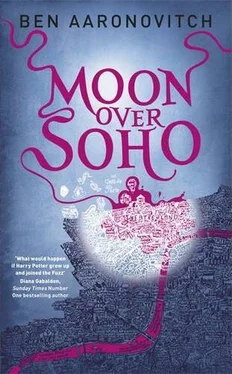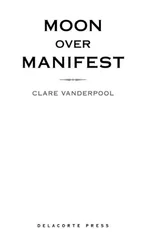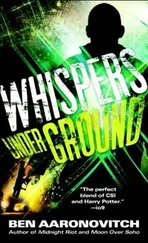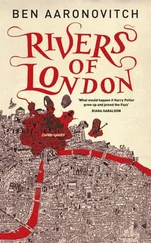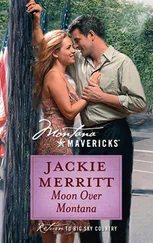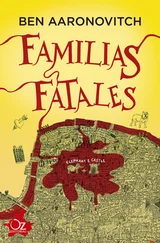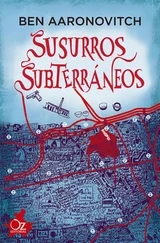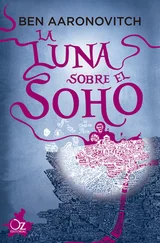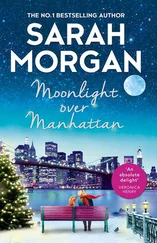I had to admit that all I knew was that his first name was Tony and that he worked for Alexander Smith as muscle and that he had no neck. Subtle clues in her manner told me that Stephanopoulis was less than impressed with my police work.
“You idiot, Peter,” she said. “How could you not get his name. Everything, Peter, you have to nail down everything.”
I could hear Guleed not sniggering behind me — so could Stephanopoulis.
“I want you” — Stephanopoulis jabbed a finger at me — “to go back to West End Central and reinterview Smith about who this guy is and what he knows about him.”
“Shall I tell him he’s dead?”
“Do me a favor,” said Stephanopoulis wearily. “Once he finds out about this he’s going to shut the fuck right up and I don’t blame him.”
“Yes, guv,” I said.
Guleed asked if Stephanopoulis wanted her to go with me.
“Christ no,” she said. “I don’t want you picking up any more bad habits from him.” She looked at me again. “Are you still here?”
IT’S A truism that in a secure building like a police station, once you’re past the perimeter security you walk around unchallenged by adopting a purposeful stride and holding a clipboard. I don’t recommend testing this for two reasons: For one thing there’s nothing worth nicking from a police station that you can’t get easier from somewhere else, usually by bribing a police officer. And for another, it’s full of police officers who are often suspicious to the point of clinical paranoia. Even an acclaimed uniform hanger and all-around waste of space like PC Phillip Purdy. This evening he made a spectacular bid to get his name inscribed in the police book of remembrance. As events were reconstructed later Purdy, having successfully navigated his tutu-wearing prisoner into the custody suite, was on his way to the canteen to do his “paperwork” when he spotted an IC1 female walking up a side staircase in the direction of the CID interview rooms. On the CCTV footage from the stairwell he’s clearly seen calling after her and, when she fails to respond, following her up the stairs.
At just that moment, at least according to the time code from the CCTV camera in the foyer, yours truly was flashing his warrant card and getting buzzed into the building. I then head, with my Costa Coffee double macchiato in one hand and a cinnamon swirl in the other, for the central staircase and make my way up toward the same interview room — at this stage I’m one floor down.
Interview rooms used to be just ordinary offices fitted out with a table, a couple of chairs, good soundproofing, and a place to leave the telephone books when you were finished. These days, a modern interview room has two camera positions, a tape recorder, a one-way mirror, and a separate recording suite from which an enterprising senior investigating officer can monitor several interviews at once or have a bit of a nap. Since at West End Central all of this had to be shoehorned into the space designed in the 1930s as a modest open-plan office, it meant the access corridor outside the interview rooms was a bit narrow. The single CCTV camera that covered the corridor began to malfunction about the time I started up the steps and none of the recording equipment in the interview rooms was turned on. This is all to the good for me, because it means that when I came around the corner and found myself face-to-face with the Pale Lady my thirty seconds of stunned indecision were not recorded for posterity.
Apart from her hair, which had been shorn off into a ragged pageboy, she looked exactly like the witness descriptions: white face, big eyes, disturbing mouth. She was dressed in gray joggers, a salmon-pink hoodie, and she didn’t see me at first because she was attempting to shake PC Phillip Purdy off her leg. He was stretched out on the floor with his left arm, broken in two places I learned later, dragging beside him and his right hand locked around the Pale Lady’s surprisingly slender ankle. One of his eyes was beginning to swell shut and there was blood pouring from his nose.
I don’t know if it was shock or the fact that I had a mouthful of cinnamon swirl, or just because I’d already had a day of weird shit and was getting a bit punch-drunk, but I just couldn’t make myself move.
Purdy saw me, though. “Help,” he croaked.
The Pale Lady looked at me and cocked her head to one side.
“Help,” said Purdy again.
I tried to tell him to let go and move away, but it came out muffled in a shower of cinnamon crumbs.
Without taking her eyes off me, the Pale Lady elegantly lifted one hand and then slammed it down on Purdy’s wrist. I heard bones break and Purdy whimpered and let go. She smiled, revealing far too many teeth — I’d faced a smile like that before. I knew what was coming next. She tensed, so did I, then she surged toward me with a terrifying burst of speed, head thrust forward, mouth open, teeth bared. As she sprang at me I threw my coffee in her face. I’d just bought it. It was very hot.
She screamed and I flung myself out of her way. But because the corridor was narrow her shoulder slammed into mine, and the impact spun me around and dumped me on the floor. It was like being hit by a fast-moving cyclist. I rolled to avoid any follow-up and staggered to my feet, only to find that the Pale Lady was long gone. Each interview room has an alarm button by the door and I slapped my palm on one as I stepped over Purdy and slammed into the room where we’d stashed Alexander Smith.
He was slumped back in his chair, head thrown back, mouth open, and what looked like a bullet hole in his chest with the same charring around the cloth of his shirt that I’d seen on No-Neck earlier.
A uniformed PC cautiously stuck her head around the door and pointed a taser at me. “Who are you?” she asked.
“Peter Grant,” I said. “Suspect is an IC1 female, gray tracksuit bottoms, pink hoodie.” If I left it there some idiot was going to get himself gutted trying to tackle her. “Psychiatric patient, very dangerous, possibly armed. Probably still in the building.”
The PC looked at me in astonishment. “Yeah, right,” she said.
“Have you done the first-aid course?” I asked.
“Last month,” she said.
“Okay, give me the taser and you see to Purdy,” I said.
She handed me the taser; it was heavy, plastic, and looked like something from Doctor Who . Even in her state of shock she could tell that Smith was dead so she went off to get the first-aid kit for Purdy.
I stepped back over Purdy and took a moment to check he was still alive. “Help’s on its way,” I told him. “What the hell were you doing here?”
His face was white and sweaty with pain but he actually laughed — sort of. “It’s got a better canteen,” he said.
I told him to take it easy and headed for the stairs.
The thing about policing is that it’s something you do out on the streets rather than inside the police station. During a normal working day, the civilian staff will outnumber your actual constables by a ratio of three to one. Which means that when there’s a crisis at the local nick everybody has to rush back to deal with it. Which takes time. Feral the Pale Lady might have been, but I didn’t think she was stupid. Which meant she was going to go out by the fastest possible route, before all the police officers came rushing back in.
Since the IRA bombing campaigns started in the 1970s, police stations in London have developed a very clear idea of what constitutes inside and outside and placed a great deal of reinforced laminated Perspex between the two. West End Central was no exception. But the entrance also featured a marble-faced external staircase that had definitely been built with no concern to the needs of wheelchair users and so a second door, at pavement level and just to left of the main entrance, had been knocked into the façade — conveniently located at the base of the stairwell so you could wheel yourself straight into the lift. The designers weren’t stupid, though. It was a very thick door, and alarmed in such a way that the desk sergeant in reception could check you over on CCTV before he buzzed you out. It would have been totally secure if a young detective constable hadn’t been returning to the station with an armful of Chinese takeout and decided that it would serve as a useful shortcut to the CID offices.
Читать дальше
